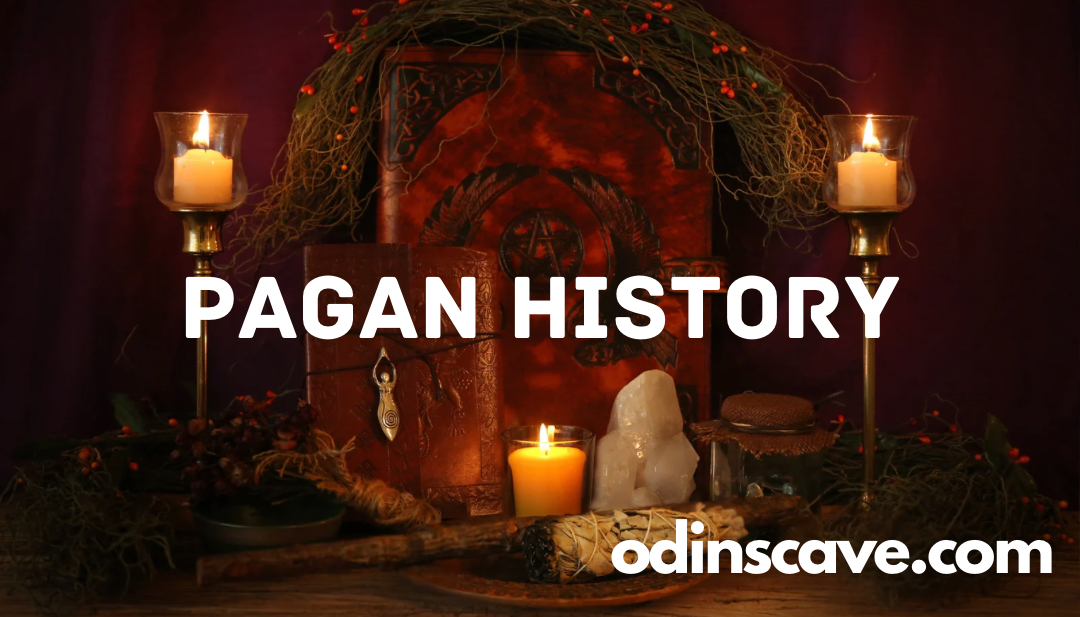Unveiling the Mysteries: A Journey into Pagan History
Throughout history, various cultures around the world have embraced spiritual beliefs that are often referred to as "pagan." These ancient traditions, rooted in nature and the worship of multiple deities, have left an indelible mark on human civilization. In this blog, we embark on a fascinating journey into the depths of pagan history, exploring its origins, practices, and enduring influence.
1. Origins of Paganism:
Paganism, derived from the Latin word "paganus" meaning "rural" or "rustic," encompasses a wide range of spiritual practices that predate the advent of major organized religions. From the ancient Egyptians and Greeks to the Celts and Norse, paganism emerged independently across different regions, reflecting a deep connection with the natural world and a reverence for ancestral spirits.
2. Nature Worship and Animism:
At the core of pagan beliefs lies a profound reverence for nature. Pagans view the Earth as a living entity, imbued with divine energy. Animism, a central aspect of paganism, recognizes the presence of spirits in all natural elements, such as trees, rivers, and mountains. This belief system fosters a harmonious relationship between humans and the environment, emphasizing the interconnectedness of all living beings.
3. Pantheons and Deities:
Paganism is often associated with polytheism, the worship of multiple gods and goddesses. Each culture developed its own pantheon, with deities representing various aspects of life, such as fertility, war, wisdom, and love. From the Egyptian gods Osiris and Isis to the Greek deities Zeus and Athena, these divine beings played a crucial role in pagan rituals and daily life.
4. Rituals and Festivals:
Paganism is rich in rituals and festivals, which serve as a means of connecting with the divine and celebrating the cycles of nature. Equinoxes, solstices, and harvest festivals mark important moments in the pagan calendar. These celebrations often involve offerings, dances, bonfires, and communal feasts, fostering a sense of community and spiritual renewal.
5. Persecution and Survival:
As major organized religions gained prominence, paganism faced persecution and suppression. The rise of Christianity, in particular, led to the demonization and eradication of pagan practices. However, pagan beliefs and customs managed to survive in various forms, often blending with new religious movements or evolving into folklore and superstitions.
6. Paganism Today:
In recent decades, there has been a resurgence of interest in pagan spirituality, often referred to as "neo-paganism" or "modern paganism." This contemporary movement draws inspiration from ancient pagan traditions while adapting to the needs and beliefs of the present. Wicca, Druidry, and Heathenry are some of the modern pagan paths that have gained popularity, emphasizing personal connection with nature and a reverence for ancestral wisdom.
Exploring pagan history unveils a tapestry of diverse beliefs, rituals, and spiritual practices that have shaped human civilization for millennia. From the worship of nature and multiple deities to the persecution and survival of pagan traditions, this ancient spiritual path continues to inspire and resonate with individuals seeking a deeper connection with the natural world and their own spiritual journey. By understanding and appreciating pagan history, we can gain insights into our shared human heritage and the enduring power of ancient wisdom.
Did you know we at odinscave.com offers a great range of premium pagan necklaces, rings, necklaces and gifts. Why not shop our ranges.


Share:
Let’s learn about Wiccan